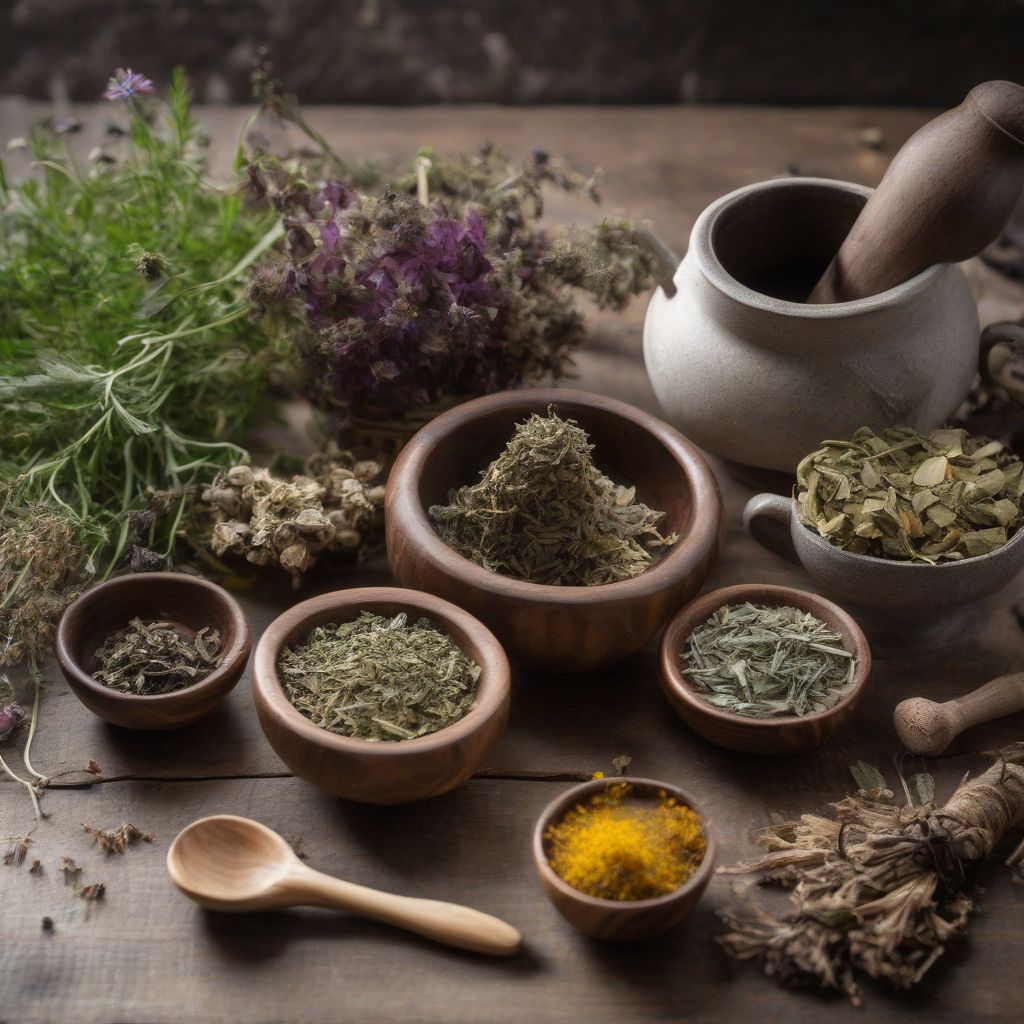Ah, the common cold and flu. Those unwelcome visitors that always seem to arrive at the most inconvenient times, leaving you feeling drained and miserable. While we all know rest and fluids are crucial, did you know that Mother Nature offers a powerful arsenal of herbs that can help alleviate those pesky symptoms and get you back on your feet faster?
As a nutritionist and meal prepping coach, I’m passionate about helping people feel their best using the power of natural remedies. So, let’s dive into the world of healing herbs and explore the best ones for tackling those nasty colds and flu bugs.
Your Herbal Allies in the Fight Against Colds and Flu
These potent herbs have been used for centuries to combat respiratory illnesses, and modern science is backing up their traditional uses.
1. Elderberry: The Purple Protector
Let’s start with a fan favorite: elderberry. This potent berry is packed with antioxidants and has been traditionally used to shorten the duration of colds and flu. Research suggests that elderberry can help reduce the severity and duration of flu symptoms, thanks to its antiviral properties.
How to Use:
- Elderberry syrup: A delicious and easy way to get your daily dose, especially for kids.
- Capsules or tablets: Convenient for on-the-go relief.
- Tea: Enjoy a soothing cup of elderberry tea with a touch of honey.
2. Echinacea: The Immune System Booster
Echinacea is like the superhero of the herbal world when it comes to boosting your immune system. This powerful herb has been shown to stimulate the activity of immune cells, helping your body fight off infections more effectively.
How to Use:
- Echinacea tea: A warm and comforting way to support your immune system.
- Tincture: A concentrated extract that can be added to water or juice.
- Capsules: A convenient option for daily immune support.
3. Ginger: The Soothing Stomach Settler
We all know that feeling of nausea that can accompany a nasty cold or flu. That’s where ginger comes in, acting like a soothing balm for your stomach. Ginger has powerful anti-inflammatory properties and has been used for centuries to ease nausea, vomiting, and digestive discomfort.
How to Use:
- Ginger tea: A warming and soothing beverage for upset stomachs.
- Candied ginger: A tasty treat that can help calm nausea.
- Ginger ale (made with real ginger): A refreshing option for hydration and nausea relief.
4. Peppermint: The Congestion Buster
Feeling stuffy? Peppermint oil is a natural decongestant that can help clear your sinuses and relieve that uncomfortable pressure. The menthol in peppermint helps to relax the muscles in your airways, making it easier to breathe.
How to Use:
- Steam inhalation: Add a few drops of peppermint oil to a bowl of hot water and inhale the steam.
- Chest rub: Combine peppermint oil with a carrier oil like coconut oil and rub it on your chest.
- Diffuser: Diffuse peppermint oil in your home to promote clear breathing.
5. Licorice Root: The Sore Throat Soother
Licorice root is a natural anti-inflammatory and antiviral that can work wonders on a scratchy, irritated throat. It helps to soothe inflammation and reduce pain, providing much-needed relief.
How to Use:
- Licorice root tea: Enjoy a comforting cup of licorice root tea with a touch of honey.
- Lozenges: A convenient option for soothing a sore throat on the go.
- Gargle: Simmer licorice root in water, strain, and use as a gargle.
 Herbal Tea for Cold and Flu Relief
Herbal Tea for Cold and Flu Relief
Boosting Your Body’s Defenses: Tips for Using Herbs Safely and Effectively
While herbs are generally safe, it’s always best to consult with your healthcare provider before incorporating them into your routine, especially if you’re pregnant, breastfeeding, or taking medications. Here are some additional tips for using herbs safely and effectively:
- Start slow: When trying a new herb, start with a small dose to see how your body reacts.
- Choose quality products: Opt for reputable brands and high-quality herbal products.
- Listen to your body: Pay attention to how your body feels and adjust your dosage or discontinue use if necessary.
Embrace the Power of Nature’s Pharmacy
Using herbs is like tapping into the wisdom of traditional healing practices. These natural remedies can provide gentle yet effective relief from cold and flu symptoms, helping you feel better faster. Remember to stay hydrated, get plenty of rest, and nourish your body with immune-boosting foods.
Disclaimer: I am not a medical professional. The information provided in this article is for informational purposes only and is not intended to diagnose, treat, cure, or prevent any disease. Always consult with a qualified healthcare provider before making any decisions about your health or treatment.
[amazon bestseller=”elderberry syrup”]
